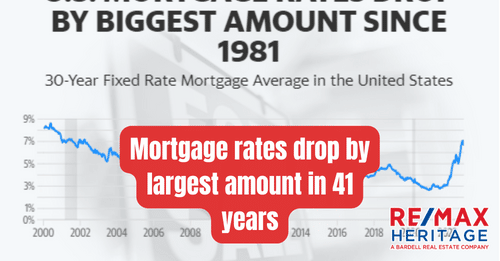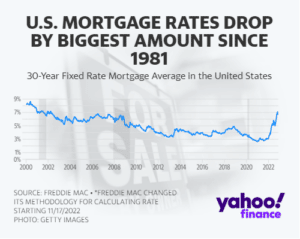Decluttering and Downsizing: A Guide for Seniors and Their Loved Ones
Throughout our lifetime, it’s easy to accumulate belongings that we may no longer use. Whether it’s a gift you didn’t want in the first place, an expensive kitchen appliance you haven’t used in years, or a wardrobe that no longer suits you, it can be hard to part ways without feeling guilty. But let’s face it, clutter has the ability to multiply as soon as you take your eyes off it.
For your loved one, adjusting to life in a new home can be challenging. It involves significant changes, like leaving behind a home where happy memories were made and finding new homes for some of their belongings. Helping your aging parents declutter is a big effort but a necessary one.
Decluttering is a wonderful way to reflect on memories your loved one holds dear and open the door to the next stage of life. This guide is designed to make the decluttering and downsizing process as simple as possible for aging adults and their loved ones. It will help you prepare for the transition and offer advice to loved ones on what they can do to help. Keep the lines of communication open, take it one step at a time, and don’t rush into anything before you’re ready.
Step 1: Discuss the move with your loved one
The sooner you discuss the decluttering and downsizing process, the more time everyone will have to evaluate all options. Unless your aging parent or family member has experienced a recent medical issue that can hinder their quality of life, don’t force the conversation if your loved one seems resistant to the idea.
Find a time, space, and place to spark the conversation where your loved one will feel comfortable and supported. Plan for interruptions and conversational derailments. You can even practice beforehand, make notes, and rehearse the conversation with a friend so you can feel confident that you’re communicating in a positive way. Remember that difficult questions and conversations take time, patience, and perseverance to sort through.
If you did face hesitancy from your aging adult, bring the topic of decluttering and downsizing up again at a later date. It’s important to be patient with your loved one and recognize they may be feeling frustration, fear, and anxiety.
Step 2: Set a tentative date
Create a calendar to share with your loved one and others involved in the move to take some of the uncertainty away. Choose tentative dates for:
- Downsizing and packing
- Charity pick-ups, a garage or estate sale, or trash pick-ups
- Booking a moving truck or asking friends and family to come and help
- Moving day
- Unpacking boxes and setting up the new place
Step 3: Determine the area and size of the new home
Mobility and ability restrictions, caregiving needs, proximity to family, and budget all play a role in where your loved one can live. Their preferences are crucial to the equation and should be considered at each step. There will likely be compromises, especially if budget concerns are an issue, so be prepared to have multiple conversations to work out the details.
Remember that the arrangements can look just about any way you want them to. Many retirement communities and assisted living facilities offer personalized options to meet any need or comfort — so it’s essential to ensure everyone feels satisfied with them. There are five main options for seniors looking to downsize:
- Buying a smaller house or condo with home modifications applied as necessary
- Renting a smaller home
- Moving in with a loved one (adult child, sibling, etc.)
- Moving into a retirement community
- Finding in-home care services
- Entering assisted living
Step 4: Declutter and downsize your loved one’s belongings
It’s amazing the number of things we can acquire throughout a lifetime. From an endless array of dishes and closets full of linens to the many souvenirs and knickknacks of a life well-lived, addressing where all these items will go can be an emotional and overwhelming process. These aren’t just objects; they’re memories, and they’re what made your loved one’s house a home for all these years. It’s important to acknowledge and respect this loss. Be sure your loved one goes into the process prepared to part with plenty, and try your hardest to make room for the items that mean the most.
The most straightforward way to sort through items and purge the house of clutter is to ask your loved one four questions about the item:
- “Do you need it or want it?”
- “Does it have sentimental value?”
- “Do you use it often?”
- “Do you have another item that performs the same function?”
“Setting goals early is an excellent start to your journey of downsizing unwanted clutter in your home,” says James Lane. “Visualize what each room should look like, decide what needs to go to make that a reality, and sell or donate the items. Focus on the joy the item will bring to others.”
You can categorize each item and decide what your family member, parent, or friend will take, store, donate, or sell. You can usually recycle old bills and paperwork that’s no longer necessary. Be sure to look for important documents that you or your loved one must keep, such as birth certificates, deeds, financial documents, medical records, passports, powers of attorney, and wills.
What if your loved one refuses to part with these items?
Many people don’t want to let go of things they feel are important. If it’s necessary to find a new home for an item, you can try the following:
- Talking to an antique dealer to find out how much items are worth. Sometimes a dollar figure can make a big difference in a person’s decision-making process.
- Hiring a professional organizer. If you’re too close to the situation and your help becomes frustrating for your loved one, it might be best to bring in an impartial third party who’s used to helping people let go.
- Explaining to your loved one where the items will go and that they will be treasured. This is especially important with things tied to the family legacy, like old documents and photos.
Step 5: Find new homes for the items your loved one isn’t keeping
If your loved one has a lot of belongings that can’t move with them, such as furniture and keepsakes, there’s a big decision on the horizon. They must decide whether to put everything in storage, hold a yard sale, or divide items between family members.
Moving expenses can quickly add up. Yard sales are a great way to make extra money to help fund the move and find new homes for your loved one’s belongings. Donate any remaining items to local charities and organizations to ensure someone in need will benefit from the donation. Another option is to work with a local expert who will help by setting up an online auction or assist in managing your local estate sale.
Step 6: Handle the paperwork
You may need to change your loved one’s address, transfer utilities to someone else’s name, or finalize registration at your friend or family member’s retirement home or assisted living facility. Make sure you tackle these tasks early so you’re not scrambling later. Don’t forget to update the address for your loved one’s bank and credit card accounts, driver’s license and vehicle registration, insurance policies, investment and retirement accounts, Medicare and Social Security, and voter registration.
Step 7: Begin packing and prepare for the move
Packing is stressful, no matter how you look at it. To make things easier on your parent, friend, or family member, take it slowly and start early. Remember that your loved one’s participation can help them feel in control, minimizing anxiety and quelling nervousness about the big move. It’s also important to remember that this is a big job, and too much at once can be overwhelming. Try to keep packing, sorting, and organizing confined to less than a couple of hours per day. And, if your loved one wants to stop and reminisce, join in.
It’s helpful to work with a relocation expert. They can help devise a plan to pack and declutter, move things to storage, take items to a charity location, move your loved one into their new home and help unpack.
“Planning ahead is key to preparation upon moving,” shares Lane from Caring Transitions. “Being proactive by curating a to-do list is a great way to resolve challenges ahead of time and to be as efficient as possible. Contact the person who manages the moving team to let them know the number of items, distance, and any other information you feel is necessary.”
Step 8: Say goodbye to the house
The truth is, there’s no right or wrong way to say goodbye to a beloved home. Discuss what will work best for your family in an open and honest setting. However the goodbyes are said, make it a point to bid farewell. Let them know it’s okay to feel sad but to not lose sight of the exciting next step.
“When it’s time to downsize, remind your loved one of the benefits of this new chapter in their life,” suggests Lane. “Reach out to local recreation centers to learn about activities within your family or friend’s new neighborhood. Research restaurants and cafes to find out their daily specials and weekly events.”
Step 9: Make the transition
“Begin a smooth transition by planning where to place furniture and other items in the home,” says Lane. “Measuring each room to make sure the furniture fits will save your loved one from certain challenges ahead of time, such as a sofa that won’t fit through a doorway. Before moving anything in, take plenty of photos and videos –this is a fantastic way to note any issues that may need fixing, such as a drippy faucet or a broken washing machine.”
Do what you can to bring in your loved one’s most treasured items first, those that will make them feel especially comforted. Move-in day should be a family affair, even if you already have help from a relocation expert. Keep the mood as light and exciting as possible, and focus on the fact that it’s a new beginning rather than an end.
Step 10: Be supportive after the move
Adjusting to a new environment, particularly if it’s a lot different than the old one, can take weeks or months. Your loved one needs plenty of time to settle in, get to know people (including caregivers), and start feeling at home, so don’t rush the process.
Familiar faces can help make adjusting to a new place easier. Try to visit as often as you can (or as often as your loved one wants you to). If you can’t visit, see if someone can help your loved one Skype or FaceTime, or make regular phone calls to check up on them.
Final thoughts
Decluttering and downsizing is often one of the best choices an aging parent can make, but it’s their decision when and if they want to. Ease into the idea and keep the conversation ongoing. It may be painful, but the inevitable sting of leaving the family home should never stop anyone from simplified and happier living.
Why people choose 55 plus communities in Orlando
When searching for the perfect 55 plus community Florida’s climate and pace of life provides an irresistible combination. More and people are choosing retirement to the sunshine state but Florida is also top of the list when it comes to financing. We have no state income tax! Affordable housing in active 55 plus Communities is constantly in demand. We have been helping people buying and selling property in these deed restricted communities for over 30 years. If you are seriously considering retiring to Florida our experienced Realtors can help you find an affordable property. Looking for Golf communities, waterfront properties, manufactured homes, villas, RV Homes and all with superb community facilities at a price to suit your budget. We work with all the new home developers and other local brokerages to find the perfect match and realize your Florida retirement dream
Click Here to learn more or call us today at (863) 424-2309







